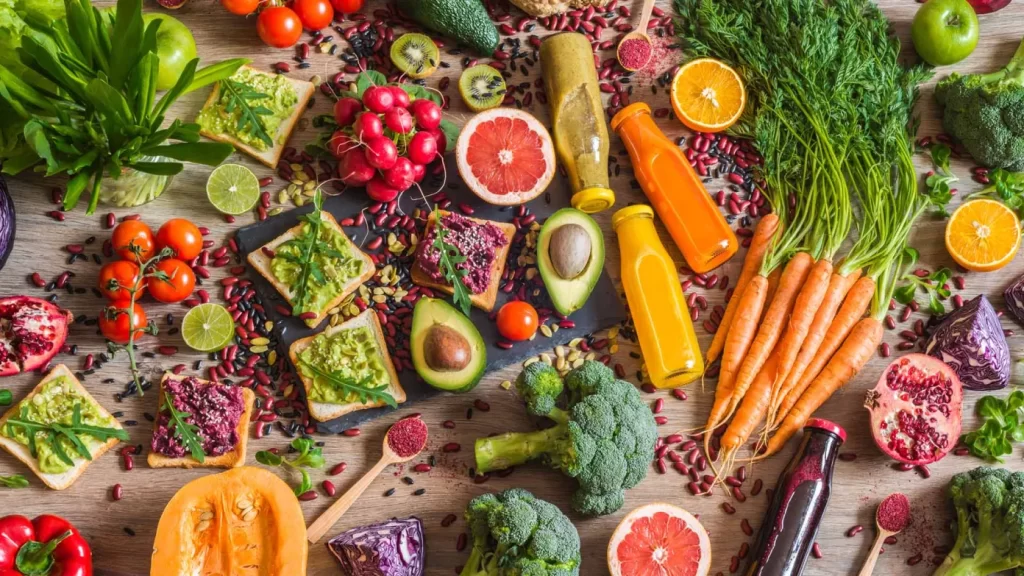Eat Your Way to Happiness: Foods That Boost Your Brain

We all know munching on “healthy” foods keeps our bodies in tip-top shape, warding off diabetes, cancer, obesity, and heart disease. But here’s a fun twist: eating well also gives our mental health a turbo boost, cutting down the risk of depression and anxiety. Yes, you heard it right—your plate can be your happy place!
The Pricey Problem of Mental Health
Mental health disorders are skyrocketing, and the price tag for treatments and medications? A whopping $2.5 trillion a year globally. Ouch! But there’s good news: changing what we eat can help reduce mental health issues. In fact, Australia’s clinical guidelines now suggest tweaking your diet as part of depression treatment. Ready to dive into the delicious details?
1. Complex Carbohydrates: The Brain’s Best Buddy
Want to fuel your brain cells the right way? Say hello to complex carbohydrates! These goodies, found in fruits, veggies, and whole grains, release glucose slowly into our system, keeping our mood steady and bright. Unlike simple carbs from sugary snacks that cause wild sugar highs and lows (hello, mood swings!), complex carbs offer a smooth and happy ride for our brain.
2. Antioxidants: Your Brain’s Bodyguards
Our cells love oxidation for energy, but it also causes oxidative stress, especially in the brain. This stress can zap happy chemicals like dopamine and serotonin, leading to a mental health dip. Enter antioxidants! Found in brightly coloured fruits and veggies, these superheroes repair oxidative damage and fight off free radicals. More antioxidants = more happy chemicals = a happier you!
3. Omega-3: The Fatty Acid of Happiness
Omega-3s are like the VIPs of brain health, helping convert food into energy and supporting feel-good chemicals like dopamine, serotonin, and norepinephrine. You’ll find these magical fats in oily fish, nuts, seeds, leafy veggies, eggs, and grass-fed meats. Omega-3s not only boost brain function but can also slow dementia and improve depression. They’re essential because our bodies don’t produce them, so let’s get munching!
4. B Vitamins: The Happiness Producers
B vitamins are crucial for producing serotonin and dopamine, our brain’s happiness chemicals. They’re hiding in green veggies, beans, bananas, and beetroot. High levels of B6, B12, and folate protect against depression, while a deficiency can lead to low moods. So, load up on B vitamins to keep those feel-good chemicals flowing!
5. Prebiotics and Probiotics: Gut Feelings Matter
Our tummies are home to trillions of bacteria that influence our mood, behaviour, and brain health. Prebiotics and probiotics in yogurt, cheese, and fermented foods like kombucha, sauerkraut, and kimchi work wonders. They calm immune reactions, reduce brain inflammation, and elevate happy emotions. So, feed your gut to feed your happiness!
Incorporating these nutrient-packed foods into our diets doesn’t just boost physical health—it’s a recipe for mental well-being, too. So next time you’re planning a meal, think of it as a delicious way to brighten your day and boost your brain!
Eat Your Way to Happiness: Foods That Boost Your Brain
We all know munching on “healthy” foods keeps our bodies in tip-top shape, warding off diabetes, cancer, obesity, and heart disease. But here’s a fun twist: eating well also gives our mental health a turbo boost, cutting down the risk of depression and anxiety. Yes, you heard it right—your plate can be your happy place!
The Pricey Problem of Mental Health
Mental health disorders are skyrocketing, and the price tag for treatments and medications? A whopping $2.5 trillion a year globally. Ouch! But there’s good news: changing what we eat can help reduce mental health issues. Australia’s clinical guidelines now suggest tweaking your diet as part of depression treatment. Ready to dive into the delicious details?
1. Complex Carbohydrates: The Brain’s Best Buddy
Want to fuel your brain cells the right way? Say hello to complex carbohydrates! These goodies, found in fruits, veggies, and whole grains, release glucose slowly into our system, keeping our mood steady and bright. Unlike simple carbs from sugary snacks that cause wild sugar highs and lows (hello, mood swings!), complex carbs offer a smooth and happy ride for our brain.
2. Antioxidants: Your Brain’s Bodyguards
Our cells love oxidation for energy, but it also causes oxidative stress, especially in the brain. This stress can zap happy chemicals like dopamine and serotonin, leading to a mental health dip. Enter antioxidants! Found in brightly coloured fruits and veggies, these superheroes repair oxidative damage and fight off free radicals. More antioxidants = more happy chemicals = a happier you!
3. Omega-3: The Fatty Acid of Happiness
Omega-3s are like the VIPs of brain health, helping convert food into energy and supporting feel-good chemicals like dopamine, serotonin, and norepinephrine. You’ll find these magical fats in oily fish, nuts, seeds, leafy veggies, eggs, and grass-fed meats. Omega-3s not only boost brain function but can also slow dementia and improve depression. They’re essential because our bodies don’t produce them, so let’s get munching!
4. B Vitamins: The Happiness Producers
B vitamins are crucial for producing serotonin and dopamine, our brain’s happiness chemicals. They’re hiding in green veggies, beans, bananas, and beetroot. High levels of B6, B12, and folate protect against depression, while a deficiency can lead to low moods. So, load up on B vitamins to keep those feel-good chemicals flowing!
5. Prebiotics and Probiotics: Gut Feelings Matter
Our tummies are home to trillions of bacteria that influence our mood, behaviour, and brain health. Prebiotics and probiotics in yogurt, cheese, and fermented foods like kombucha, sauerkraut, and kimchi work wonders. They calm immune reactions, reduce brain inflammation, and elevate happy emotions. So, feed your gut to feed your happiness!
Incorporating these nutrient-packed foods into our diets doesn’t just boost physical health—it’s a recipe for mental well-being, too. So next time you’re planning a meal, think of it as a delicious way to brighten your day and boost your brain!
